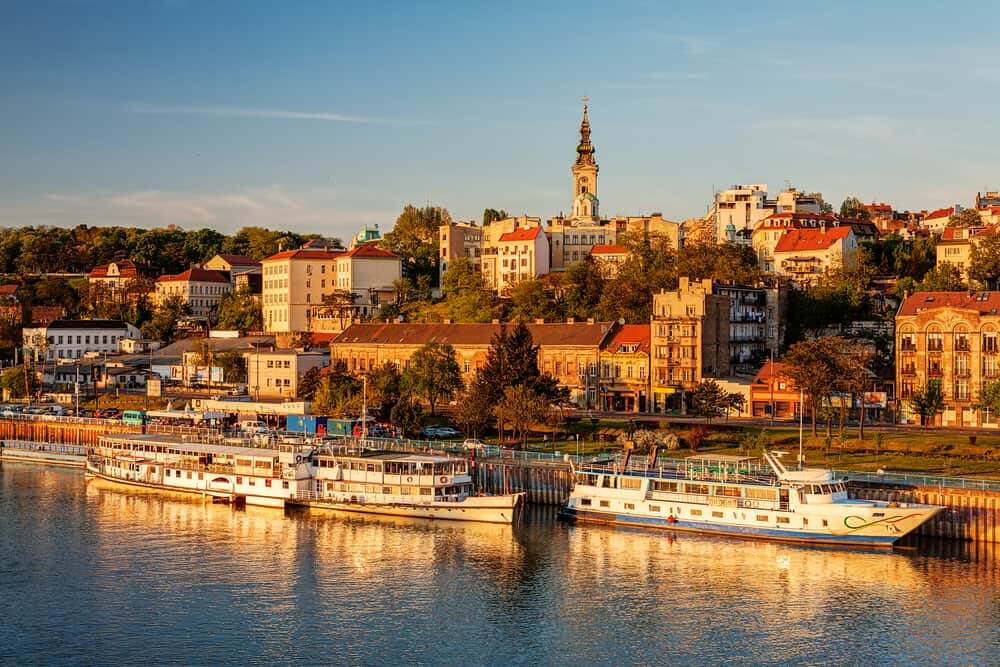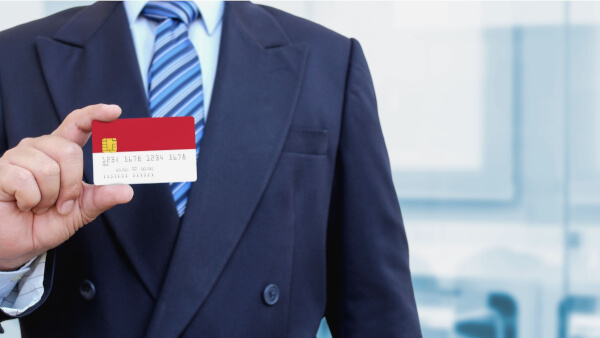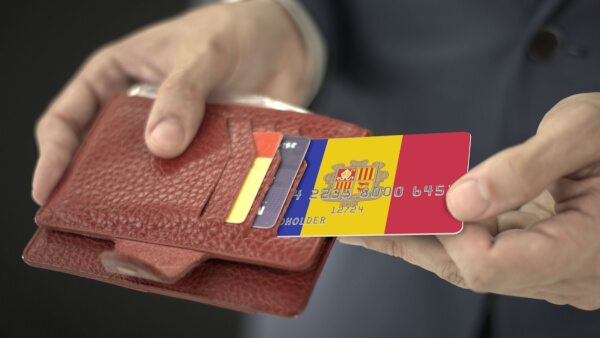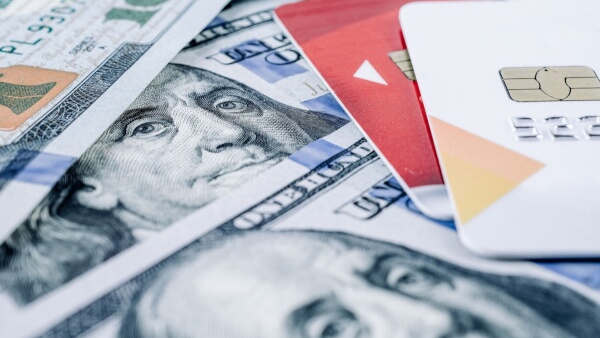How to open a UK bank account online in 2025
Check out our essential guide on how to open a bank account online, including bank types, required documents, fees, and more.

Thinking about moving to Serbia? Perhaps spending some time there working, studying or visiting friends? Whatever your plans may be, you’ll most likely need your own local bank account at some point.
So, can a foreigner open a bank account in Serbia? What is the process like? In this guide, we’ll cover all your questions and doubts. Plus, a list of best banks and account options in Serbia for expats.
We’ll even throw in a handy tip to help you manage your money across international borders - the Wise multi-currency account. This lets you send money from the UK to Serbia, or all over the world, for low fees and a fair exchange rate. This could be of great help for covering those initial moving expenses.
But first, let’s focus on getting your Serbian bank account open.
The short answer is - yes, foreigners can have local bank accounts. If you’re a non-resident, meaning someone whose permanent residence is in another country, you can open a bank account in Serbia. You can have an account both for the local currency, the Serbian dinar, and foreign currencies as well. There are no restrictions as long as you have the needed documents and follow the procedure (more on that later).
Another commonly asked question is - can you open a bank account in Serbia remotely? In other words, can you open the account before even getting there? This is where it might get a bit complicated. At the moment, completing the full procedure online by yourself isn’t possible, regardless of the bank. The most you can do is search the websites and see what bank and account type is most suitable for your needs. However, there’s an option of using the help of an authorized representative for opening your bank account. In that case, an attorney can take care of the paperwork without you actually being present.
If that’s not something you’re interested in doing, you’ll have to personally initiate the procedure in the bank of your choice. It’s not complicated or long, so doing it upon arrival won’t take up much of your time. Getting approved usually takes a couple of days, after which you’ll need to sign some paperwork to finish the process.
Keep in mind that it could be worth contacting some banks and asking about this before coming to Serbia. Since banks are in constant competition, remote account opening could possibly be in their near future.
The procedure can vary slightly from bank to bank, but the necessary documents are usually pretty much the same. Corporate accounts require some additional steps, but personal accounts are easy and quick to open.
First, you’ll need your passport as proof of identity. If you’re also a holder of another passport or a residence permit from another country, make sure you bring that too.
Next, you’ll need a document that serves as proof of residence. Depending on how long your stay is, you’ll get that either from your hotel/hostel or private housing. For example, a utility bill not older than 3 months could be used for these purposes. ³
Besides this, you’ll need to fill out certain application forms provided by the bank. If you choose to get the help of a representative, they’ll handle most of it on your behalf. If not, you can always ask for assistance from the bank employees. This part of the process usually includes signing some contracts.
There are a total of 22 banks currently operating in Serbia, domestic banks included. Out of the total number, 17 are international banks and the majority are European.
The European banks in Serbia are Addiko Bank, Banca Intesa, Crédit Agricole, Expobank, Erste Bank, Eurobank Direktna, Mobi Bank, NLB Komercijalna Bank, 3 Bank, OTP Bank, ProCredit Bank, Raiffeisen Bank and Unicredit Bank.
Non-European international banks are the following: the Bank of China, API Bank from Russia, Halkbank from Turkey and Mirabank from the UAE.
The Serbian banking system is versatile, with local banks, as well as those from the EU, Turkey, Russia, China and the UAE. This ensures variety and gives each client the opportunity to choose what best suits their current needs. The usual banking services such as E-banking, M-banking and debit cards are available with every account type. Premium features are also available, as part of different account packages.²
Although Serbia is not a member of the EU, it maintains duty-free trade with the EU, the USA, the EAEU, the European Free Trade Association and, on select duties, Japan. In general, you can expect EU-level service in Serbian banks, but for a significantly lower price. ³
Foreign currency accounts are available in USD, EUR, CHF, GBP, SEK, JPY and a few other currencies. When it comes to the deposits in Serbian banks, they are under insurance, so clients are safe even in case of bank failure. Serbia’s central bank is the National Bank of Serbia (NBS), whose long tradition dates to 1884. ²
When opening a bank account in Serbia, make sure you read the terms and conditions and get familiar with the costs. Opening an account is usually free of charge, but many other services come with a fee. These all vary slightly from bank to bank, so by looking at one or two, you should be able to get a general idea of the range. Although they’re fairly low, they can build up over time, so it’s good to be aware of them.
For example, opening an account in Erste Bank is free, but account maintenance for most accounts comes with a small monthly charge. The exact fee depends on the account type - the basic account or one of the premium ones. The basic one is 150 RSD (around 1 GBP), while the premium account monthly fee is 620 RSD (approximately 4.6 GBP). ⁵ The fees are almost the same at Eurobank Direktna. ⁶
The bank also usually charges you a one-time fee when issuing your debit cards and it’s 400 RSD (3 GBP) for certain cards in Erste Bank. In case you lose the card or it gets stolen, you pay the same price for getting a new one.
Using the card for cash withdrawal at the bank’s own ATMs won’t cost you anything, but be careful with non-network ATMs. The bank takes an additional 2% of every withdrawal, with the minimum being 200 RSD (1.5 GBP).
In Erste Bank, all internal transfers between individuals within the bank are free, except in case of real estate purchase. Payment in RSD to an account outside the bank comes with a 1% fee. Payment transfer in other currencies is 0.8% of the amount, but never less than 1200 RSD (9 GBP) per transaction.
The general rule is that banks don’t charge for the use of E-banking and M-banking, since it’s part of even the most basic accounts. However, when it comes to SMS notifications and services, that’s when costs can vary. For example, Erste Bank doesn’t charge any fee for SMS services, but Eurobank Direktna does. Even though it’s a tiny one (35 RSD or 0.3 GBP), it’s still worth looking into your options before opening an account. ⁶
There are numerous banks to choose from, both local and international. The best bank for you depends on your personal needs and preferences. Most importantly, all of them have English-speaking employees, so that won’t be an issue.
Here are some options to consider:
OTP Bank has 155 branches throughout the country and 294 ATMs - the largest number in Serbia. ⁷
One of the most popular account packages they offer is the Praktik package. It includes both a RSD and foreign currency account, a Mastercard Gold International debit card and the local DinaCard. Those that spend at least 15000 RSD (112 GBP) per month don’t have to pay account maintenance fees. Otherwise, they’re around 400 RSD (3 GBP). ⁸
The Klasik package is the more basic one, with a Mastercard Standard International debit card. Also, the maintenance fees are just under 300 RSD (around 2 GBP). ⁹
Mobi Bank offers fully mobile banking. The account types they offer are the Payment account with basic services, the Lite account, the Starter account and the Progresiv account.
For example, the Starter package includes a multi-currency account and a Mastercard debit card. A nice touch is the option of choosing your own account number. This can come in useful if you want to be able to memorize it easily. All that for 150 RSD (around 1 GBP) per month. ¹¹
Besides the basic services, the Progresiv+ account allows cash withdrawal from non-network ATMs without charge. This could be a good option for those that are on the go and don’t want to waste time searching for an ATM. ¹²
If you plan on spending some time in Serbia, a local bank account is something you’ll certainly find useful. It can come in handy for paying your bills or receiving your salary. But a traditional bank account might not be the best option for sending and receiving international payment.
Banks tend to have high transfer fees, so sending and receiving money can be fairly expensive. Also, they usually add a mark-up to the exchange rate. The Wise multi-currency account is a great alternative for expats living in Serbia, or anywhere else in the world.
With Wise, you can send money worldwide for low transparent fees and the mid-market exchange rate. Not only that, you can manage your money in 50+ currencies.
Sound like just what you need? Open your Wise account online in just a matter of minutes.
Sources used for this article:
Sources checked on 20-Oct-2022.
*Please see terms of use and product availability for your region or visit Wise fees and pricing for the most up to date pricing and fee information.
This publication is provided for general information purposes and does not constitute legal, tax or other professional advice from Wise Payments Limited or its subsidiaries and its affiliates, and it is not intended as a substitute for obtaining advice from a financial advisor or any other professional.
We make no representations, warranties or guarantees, whether expressed or implied, that the content in the publication is accurate, complete or up to date.

Check out our essential guide on how to open a bank account online, including bank types, required documents, fees, and more.

Check out our essential guide on how to open a bank account in Jersey as a British expat, including documents, fees, banks and much more.

Check out our essential guide on how to open a bank account in Monaco as a British expat, including documents, fees, banks and much more.

Check out our essential guide on how to open a bank account in Andorra as a British expat, including documents, fees, banks and much more.

Read our rundown of the best Nationwide USD account alternatives available in the UK, including HSBC, Lloyds, Wise, Barclays, Revolut and more.

Read our essential guide to the Revolut USD Account, including info on features, fees, rates, limits and how to apply.